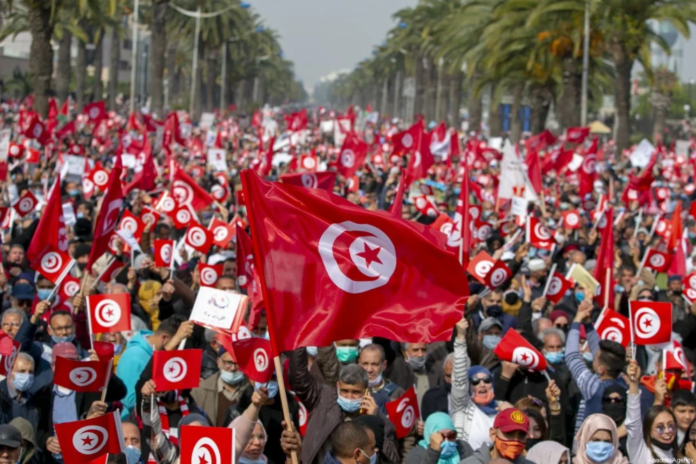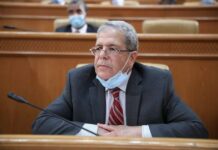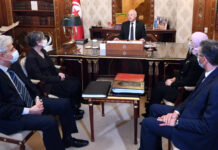After his meeting yesterday, Friday, September 10, with Tunisian President Kais Saied, the European Union foreign policy representative Josep Borrell called for the return of parliament and the preservation of democratic gains in the country.
While the Labor Union offered a road map to get out of the status quo, Tunisian parties denounced the statements of the president’s advisor about the possibility of the suspension of the constitution.
As part of a two-day visit, Borrell met Saied at the presidential palace, as well as ministers and representatives of Tunisian political parties and organizations, and the visit comes after 6 weeks of the measures taken by the President of the Republic, which included suspending the activity of Parliament, dissolving the government, assuming the tasks of the entire executive authority, and the presidency of the Public Prosecution , among what he said is the activation of Chapter No. 80 of the Constitution.
In a statement issued by the European Commission, Borrell said, “I conveyed to the President European concerns regarding preserving the gains of democracy in Tunisia, which is the only way to ensure the stability and prosperity of the country.”
He added that “the free exercise of legislative power and the resumption of parliamentary activity are part of these gains, and they must be respected.”
The European official stressed the country’s leadership towards restoring institutional stability and preserving its democratic principles, according to the statement of the European Commission.
Borrell referred to the European Union’s commitment to consolidating democracy in Tunisia, respecting the rule of law and basic freedoms, stressing in turn the European Union’s respect for Tunisian sovereignty.
Last Monday, the ambassadors of the Group of Seven major countries (the United States, Britain, France, Germany, Italy, Canada and Japan) to Tunisia called on Tunisian President Kais Saied to quickly appoint a new prime minister, and to return to the constitutional system in which the elected parliament plays a major role.
Before that, a delegation from the US Congress and another from the White House visited Tunisia, and the two delegations urged the Tunisian president to return to the democratic path and expedite the formation of a new government.
Partisan Positions
Meanwhile, a number of Tunisian political parties and personalities denounced the statements of the Tunisian President’s advisor, in which he expressed the President’s intention to suspend the implementation of the 2014 constitution and change the political system.
The Democratic Current Party said – in a statement – that the President of the Republic should clarify his position in this regard, and respect the constitution.
The party rejected what it described as individual attempts to change the social contract and exploit the anger of Tunisians to impose political choices.
The former Secretary-General of the Democratic Current Party and former Minister, Mohamed Abbou, also expressed his opposition to suspending the constitution, and said that its amendment could take place in the light of a future elected parliament, adding that the goal of resorting to Article 80 was to dismantle what he described as the system of political corruption, not to amend the constitution and go towards a presidential system.
As for the “Harak Tounes Al-Irada” (Tunisia Determination Movement) party, it considered that the statements prove what it called “a coup approach” that the Presidency of the Republic has followed since last July 25.
For his part, the Secretary-General of the Republican Party, Issam Chebbi, said that the future of the political system is a national affair, and the President of the Republic may not single out it and modify it to align with his convictions.
On the other hand, a representative of the National Bloc expressed his astonishment at what he described as “the lament of some over the current constitution”, describing it as a booby-trapper that divided power and created crises and did not provide solutions to Tunisians, as he put it.
Road Map
For its part, the Tunisian General Labor Union announced what it said was a “road map” prepared by its experts to manage the exceptional phase Tunisia is going through.
The road map suggests accelerating the formation of a mini government of national competencies, in consultation between the Presidency of the Republic and civil organizations.
The union also called for the formation of an advisory body whose task would be to develop a legal vision for reforming the political and electoral systems and the constitution, with the need to set a time limit for exceptional procedures and a decision on the fate of the current parliament.
In the economic field, the plan proposes launching urgent economic reforms and preparing a supplementary budget for the current year, in addition to the necessity of scrutinizing the country’s current financial situation and the ways of disposing of loans obtained by Tunisia.
Traanslatedfrom: Al Jazeera & agencies News











